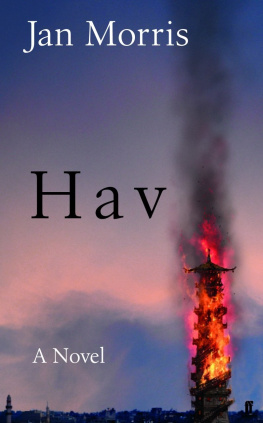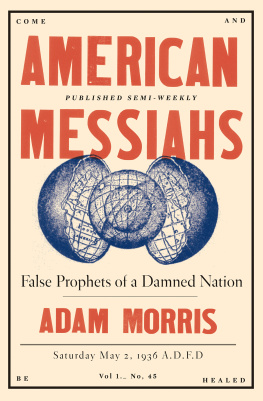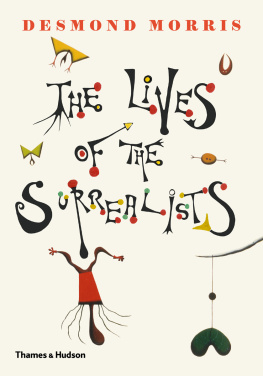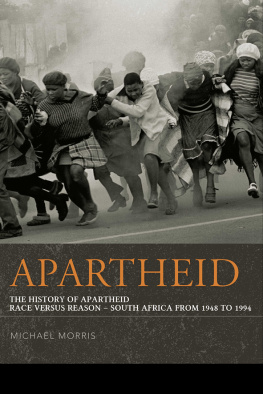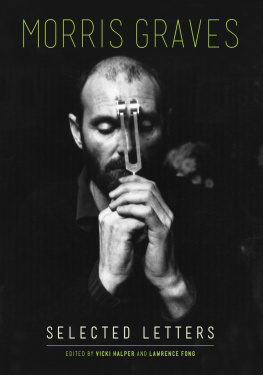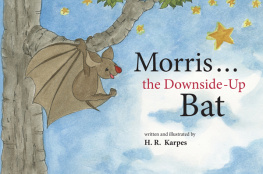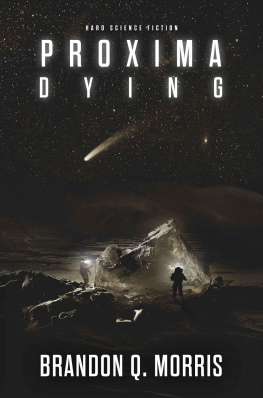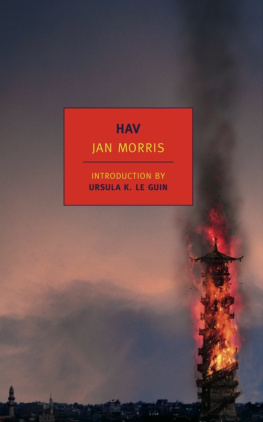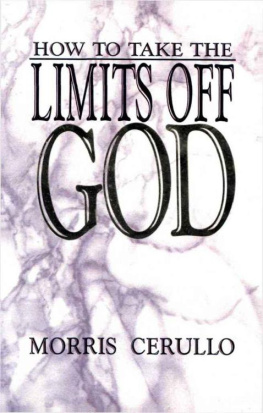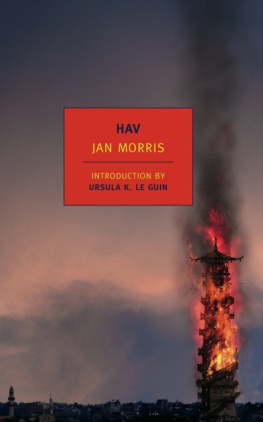Morris - Hav
Here you can read online Morris - Hav full text of the book (entire story) in english for free. Download pdf and epub, get meaning, cover and reviews about this ebook. City: New York;Fantasy fiction, year: 2006;2011, publisher: Faber & Faber;New York Review Books, genre: Detective and thriller. Description of the work, (preface) as well as reviews are available. Best literature library LitArk.com created for fans of good reading and offers a wide selection of genres:
Romance novel
Science fiction
Adventure
Detective
Science
History
Home and family
Prose
Art
Politics
Computer
Non-fiction
Religion
Business
Children
Humor
Choose a favorite category and find really read worthwhile books. Enjoy immersion in the world of imagination, feel the emotions of the characters or learn something new for yourself, make an fascinating discovery.
- Book:Hav
- Author:
- Publisher:Faber & Faber;New York Review Books
- Genre:
- Year:2006;2011
- City:New York;Fantasy fiction
- Rating:4 / 5
- Favourites:Add to favourites
- Your mark:
- 80
- 1
- 2
- 3
- 4
- 5
Hav: summary, description and annotation
We offer to read an annotation, description, summary or preface (depends on what the author of the book "Hav" wrote himself). If you haven't found the necessary information about the book — write in the comments, we will try to find it.
Hav — read online for free the complete book (whole text) full work
Below is the text of the book, divided by pages. System saving the place of the last page read, allows you to conveniently read the book "Hav" online for free, without having to search again every time where you left off. Put a bookmark, and you can go to the page where you finished reading at any time.
Font size:
Interval:
Bookmark:

JAN MORRIS was born in 1926, is Anglo-Welsh, and lives in Wales. She has written some forty books, including the Pax Britannica trilogy about the British Empire; studies of Wales, Spain, Venice, Oxford, Manhattan, Sydney, Hong Kong, and Trieste; six volumes of collected travel essays; two memoirs; two capricious biographies; and a couple of novelsbut she defines her entire oeuvre as disguised autobiography. She is an honorary D.Litt. of the University of Wales and a Commander of the British Empire.
URSULA K. LE GUIN has published twenty-one novels as well as volumes of short stories, poems, essays, and works for children. Among her novels are The Left Hand of Darkness and The Dispossessed, both winners of the Nebula and Hugo awards.
HAV
Comprising
LAST LETTERS FROM HAV
HAV OF THE MYRMIDONS
JAN MORRIS
Introduction by
URSULA K. LE GUIN
NEW YORK REVIEW BOOKS

New York
When Last Letters from Hav was published (and short-listed for the Booker Prize) in 1985, Jan Morriss well-deserved fame as a travel writer, and the unfamiliarity of many modern readers with the nature of fiction, caused unexpected dismay among travel agents. Their clients demanded to know why they couldnt book a cheap flight to Hav. The problem, of course, was not the destination but the place of origin. You couldnt get there, in fact, from London or Moscow; but from Ruritania, or Orsinia, or the Invisible Cities, it was simply a matter of finding the right train.
Now, after twenty years, Morris has returned to Hav, and enhanced, deepened, and marvelously perplexed her guidebook by the addition of a final section called Hav of the Myrmidons. To say that the result isnt what the common reader expects of a novel is not to question its fictionality, which is absolute, or the authors imagination, which is vivid and exact.
The story is episodic, entirely lacking in action or plot of the usual sort; but these supposed narrative necessities are fully replaced by the powerful and gathering direction or intention of the book as a whole. It lacks another supposed necessity of the novel: characters who, while they may represent an abstraction, also take on a memorable existence of their own. Like any good travel writer, Morris talks to interesting people and reports the conversations. And people we met in the first part of the book turn up in the second part to take us about and exhibit in person what has happened to their country; but I confess I barely remembered their names when I met them again. Morriss gift is not portraiture, and her people are memorable not as individuals but as exemplary Havians.
This lack of plot and characters is common in the conventional Utopia, and I expect academics and other pigeonholers may stick Hav in with Thomas More and company. That is a respectable slot, but not where the book belongs. Probably Morris, certainly her publisher, will not thank me for saying that Hav is in fact science fiction, of a perfectly recognizable type and superb quality. The sciences or areas of expertise involved are socialethnology, sociology, political science, and above all, history. Hav exists as a mirror held up to several millennia of pan-Mediterranean history, customs, and politics. It is a focusing mirror; its intensified reflection sharply concentrates both observation and speculation. Where have we been, where are we going? Those are the questions the book asks. It poses them through the invention of a place not recognized in the atlas or the histories, but which, introduced plausibly and without violence into the existing world, gives us a distanced, ironic, and revelatory view of everything around it. The mode is not satiric fantasy, as in the islands Gulliver visited; it is exuberantly realistic, firmly observant, and genuinely knowledgeable about how things have been, and are now, in Saudi Arabia, or Turkey, or Downing Street. Serious science fiction is a mode of realism, not of fantasy; and Hav is a splendid example of the uses of an alternate geography. If, swayed by the silly snobbery of pundits as contemptuous of science fiction as they are ignorant of it, you should turn away from Hav, that would be a shame and a loss.
It is not an easy book to describe. Hav itself is not easy to describe, as the author frequently laments. As she takes us about with her in her travels of discovery, we grow familiar with the delightful if somewhat incoherent Hav of 1985. We climb up to its charming castle, from which the Armenian trumpeter plays at dawn the great lament of Katourian for the knights of the First Crusade, the Chant de doleure pour li proz chevalers qui suent morz. We visit the Venetian Fondaco, the Casino, the Caliph, the mysterious British Agency, the Kretevs who inhabit caves up on the great Escarpment through which the train, Havs only land link to the rest of Europe, plunges daily down a zigzag tunnel. We see the Iron Dog, we watch the thrilling Roof-Race. But the more we learn, the greater our need to learn more. A sense of things not understood, matters hidden under the surface, begins to loom; even, somehow, to menace. We have entered a maze, a labyrinth constructed through millennia, leading us back and back to the age of Achilles and the Spartans who built the canal and set up the Iron Dog at the harbor mouth, and before that to the measureless antiquity of the Kretevs, who are friends of the bear. And the maze stretches out and out, too, half around the world, for it seems that Havian poetry was deeply influenced by the Welsh; and just up the coast is the westernmost of all ancient Chinese settlements, which Marco Polo found uninteresting. There is nothing to be said about Yuan Wen Kuo, he wrote. Let us now move on to other places.
Achilles and Marco Polo arent the half of it. Ibn Batuta came to Hav, of course, all the great travelers did, and left their comments, diligently quoted by the Havians and Morris. T. E. Lawrence may have discovered a secret mission there; Ernest Hemingway came to fish and to carry off six-toed cats. Havs glory days of tourism were before the First World War and again after it, when the train zigzagged through its tunnel laden with the cream of European society, millionaires, and right-wing politicians; but whether or not Hitler was actually there for one night is still a matter of dispute. The politics of Hav itself in 1985 were extremely disputable. Its religions were various, since so many great powers of the East and West had governed it over the centuries; mosques and churches coexisted amicably; and indeed the spiritual scene was so innocuous as to appear feeblea small group of hermits, reputed to spend their days in holy meditation, proved to be cheerfully selfish hedonists who simply enjoyed asceticism. And yet, and yet, there were the Cathars. Late in her first visit, Morris was taken in darkness and great secrecy to witness a sitting of the Cathars of Hava strange ritual conclave of veiled women and cowled men. In some of them Morris thought she recognized friends, guides, the trumpeter, the tunnel pilot...but she could not be sure. She could not be sure of anything.
On her return twenty years later, some things appear to be all too certain. The old Hav is gone, destroyed in an obscure event called the Intervention. The train is gone, a huge airport is under construction. Ships come in to a destination resort called Lazaretto! (the punctuation is part of the name) of the most luxuriously banal kind, where, as a middle-aged lady tourist remarks, one feels so safe. The strange old House of the Chinese Master is a burnt ruin; the new landmark is a huge skyscraper called the Myrmidon Tower, a virtuoso display of unashamed, unrestricted, technically unexampled vulgarity. The British Legate is at least as sinister and much slimier than his predecessor, the British Agent. Most of the city has been rebuilt in concrete. The troglodytic Kretev are housed in hygienic villas, and the bears are extinct. The age of postmodernism has arrived, with its characteristically brutal yet insidious architecture and propaganda, its reductionist culture of advertisement and imitation, its market capitalism, its factionalism and religiosity forever threatening terror. Yet we find pretty soon that Hav is still Hav: the maze, the labyrinth, is still there. Even the elevator of the Myrmidon Tower is indirect. Who in fact is running the country? The Cathars? But who are the Cathars? What does the M on the Myrmidon Tower really stand for?
Font size:
Interval:
Bookmark:
Similar books «Hav»
Look at similar books to Hav. We have selected literature similar in name and meaning in the hope of providing readers with more options to find new, interesting, not yet read works.
Discussion, reviews of the book Hav and just readers' own opinions. Leave your comments, write what you think about the work, its meaning or the main characters. Specify what exactly you liked and what you didn't like, and why you think so.

